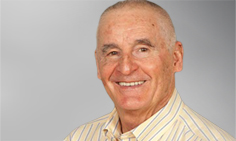SADLY, on 13 May this year, the medical world lost one of the truly great physicians of our time.
Professor David Sackett died at age 80 years from cancer of the biliary tract. While he will be remembered as a great clinician, author, innovator and mentor, his greatest legacy was as the father of evidence-based medicine (EBM).
Ironically, it was one of Sackett’s star trainees, Professor Gordon Guyatt, who first used the term evidence-based medicine in 1991.
Readers of The BMJ voted EBM among the most important medical advances in the past century. Put the term “evidence-based medicine” into Google today, and you will retrieve almost 50 million hits.
Unsurprisingly, the two most cited scholarly articles on EBM, including one published 20 years ago in The BMJ, are both authored by Sackett.
Sackett had multiple careers. After his initial training in internal medicine (nephrology), he worked in the US Public Health Service, where he was exposed to the rigorous science of population epidemiology. He soon realised the principles of population epidemiology could be translated to clinical medicine, ie, clinical epidemiology.
Sackett’s first substantive appointment, in 1966 at age 32 years, was as foundation chair of clinical epidemiology and biostatistics at McMaster University, Canada. It was here that the discipline of clinical epidemiology and the assessment of the quality of the published evidence were soon translated into what we now know as EBM.
Many readers will be aware of Sackett’s popular series of articles describing “how to read clinical journals”. This explicit methodology for assessing the quality of the published literature, or critical appraisal, was a major advance.
This series was soon followed by his popular textbook, Clinical epidemiology. A basic science for clinical medicine.
As well as his EBM stewardship, Sackett was a major contributor to McMaster University’s novel, integrated medical school curriculum, which incorporated problem-based learning. Then a new method of teaching medicine, it now enjoys worldwide popularity, including in most Australian medical schools.
Clearly, Sackett was a unique character. For example, at the age of 49 years, and a professor of medicine, he felt he was “clinically out of date”. What did he do about it? He decided to retrain, by completing a 2-year residency program in internal medicine.
As a testament to his legendary sense of humour and non-conformist attitude, he listed the corresponding author for reprints on one of his publications to a fictional character from Kurt Vonnegut’s novels — Kilgore Trout. Interestingly, reprint requests to Trout for the famous article continue to this day!
Sacket also named the research and education centre he founded at McMaster University the Kilgore S Trout Research & Education Centre.
Another of Sackett’s many legacies was the initiation of the now famous how to teach evidence-based medicine workshop at McMaster University. This annual workshop, now convened by Professor Guyatt, continues to be highly successful, attracting participants from all over the world.
In 1994, Sackett was recruited to Oxford University as director of the Centre for Evidence-Based Medicine. His objective was ambitious — to promote the teaching and practice of evidence-based health care throughout the UK and Europe.
This was a controversial appointment and, on reflection, it seems that at the time the UK was not quite ready for the radical Sackett — or EBM.
After 5 years, he left Oxford, returned to Canada, and “retired” to his lakeside cabin in Ontario. It was here he established his hugely popular regular research support programs — Trout workshops. The aim of these free, lakeside workshops was to assist young researchers in the art and science of funding and performing high-quality clinical research.
Among the many star performers mentored by Sackett are two famous Australian EBM academics, both of whom have had illustrious careers in teaching and research — Professor Les Irwig and Professor Stephen Leeder.
While David Sackett will be sadly missed, his many legacies will live on. He is survived by his wife Barbara, and their four sons.
Professor Craig Mellis is a paediatrician and respiratory physician and conducts research in paediatric respiratory medicine. He is a professor of medicine at the Sydney Medical School and associate dean and head of the Central Clinical School. He also tutors annually at the ‘How to teach evidence-based-medicine’ workshop at McMaster University, Canada.

 more_vert
more_vert
Thank you for the tribute. I have some sympathy with Willcourt but I won’t go there…
I do like to honour people who have inspired me by donating in their memory. Advice about this would be a useful addition to medical obituraries I guess.the David Sackett Scholarship fund at McMaster? Although their site suggests they have not yet caught up with current events……
Prof Sackett was a great human and doctor and was inspiring because he believed in making the truth visible. He wrote recently of his disaffection with what has happened to Evidence Based Medicine, as it morphed over the last couple of decades into Eminence Based Medicine, just as Drs Horton (editor Lancet) and Angell (past editor NEJM) have recently pointed out. Instead of people like David Sackett guiding us today, we now have experts confounding statistics with Houdini stunts. It is disgraceful. Of course, you only have to follow the money to know why some swear black is white.
Doing Australian doctors no favors is the Medical Journal of Australia routinely trumpeting ridiculously done studies to the Australian medical community as studies based on valid data. No wonder Australian Medicine is in the mess that it is. It is living in a very dark place, avoiding anything new and clinging to the beliefs of yesteryear as though they had been written on stone tablets.
I am glad that some one from the University of Sydney has respect for Prof Sackett- you, Prof Mellis would appear to be unique in that “wonderland” environment. Well done!
This post has been modified – Editor